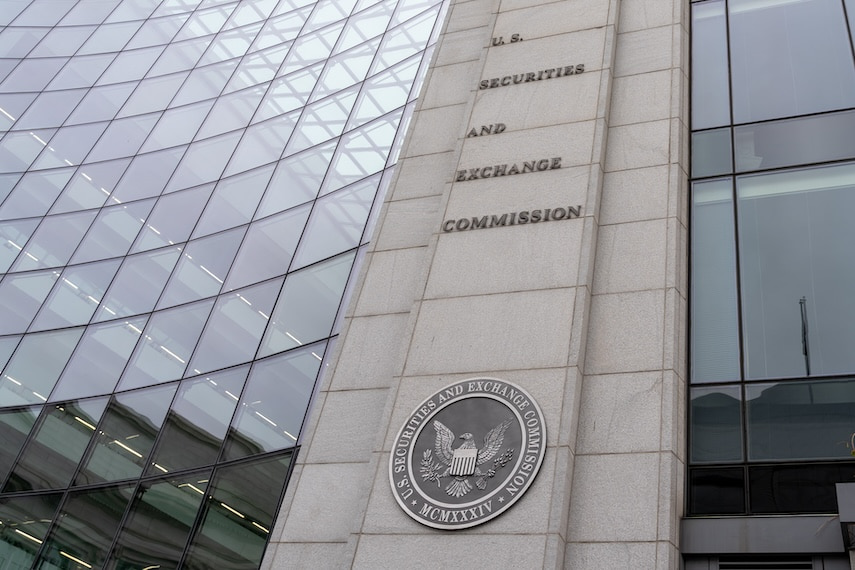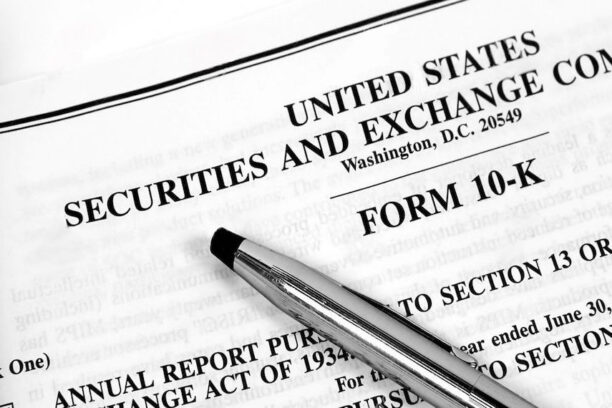SEC Chair Paul Atkins announced last week that the agency is initiating rulemaking with a significant impact on how companies report climate/sustainability matters in financial disclosures. Currently, companies that report on climate or other sustainability matters in SEC filings typically do so as an Item 1A Business Risk Factor. In our report on sustainability financial reporting by 100 US publicly traded companies, we found almost every company in our research cohort limited sustainability materiality reporting to risks, with only 27% reporting financial benefits.
Liz wrote over on TheCorporateCounsel.net:
When the SEC’s Reg Flex Agenda was published a few weeks ago, John pointed out the somewhat cryptic item of “Rationalization of Disclosure Practices.” Yesterday afternoon, in remarks at the “Financial Markets Quality Conference” at Georgetown, SEC Chair Paul Atkins gave a clearer glimpse into which disclosures could be on the chopping block. This Bloomberg Law article recaps:
“Companies sometimes spend several pages discussing risk factors in their annual 10-K reports to meet Securities and Exchange Commission requirements, confusing investors about what’s important, Atkins told reporters at a Georgetown University conference. Firms have risk-averse lawyers who ‘dump the kitchen sink in,’ the Republican said.
‘It’s become a repository for too much,’ Atkins said. ‘It’s not serving investors well.’
-
-
- The SEC during the first Trump administration required companies to have a risk factor summary of no more than two pages in their 10-Ks, if their reports discussed risks for more than 15 pages.
- Atkins said Thursday the agency also is looking to change rules for companies’ executive compensation reporting to ensure they provide ‘material’ information to investors.
- The SEC’s work to update disclosure rules will happen during the ‘coming months and years,’ the chairman said, without offering more specifics.”
-
Like I said yesterday, the disclosure regime is only piece of the puzzle for public companies – but there is room for improvement!
Keep in mind that a government shutdown could slow down these ambitious rulemaking initiatives.
The push for sustainability to be deemed material produces inconsistent results – except (for the most part) inclusion in 10-K Item 1A. If – or when – rules on risk factor disclosures change, sustainability professionals will face new challenges such as:
- How can climate risk disclosure language be reduced and more company-specific?
- Where will detailed TCFD-aligned language be placed if not in Item 1A?
- Should this be a catalyst for reporting material sustainability/climate matters differently?
Our members can learn more about the business value of sustainability here. If you’re not already a PracticalESG.com member, sign up now and take advantage of our no-risk “100-Day Promise” – during the first 100 days as an activated member, you may cancel for any reason and receive a full refund. But it will probably pay for itself before then.
Members also save hours of research and reading time each week by using our filtered and curated library of ESG/sustainability resources covering over 100 sustainability subject areas – updated daily with practical and credible information compiled without the use of AI.
Are you a client of one of our Partners – SourceIntelligence, TRC, Kumi, Ecolumix, Elm Consulting Group International or Impakt IQ? Contact them for exclusive pricing packages for PracticalESG.
Practical Guidance for Companies, Curated for Clarity.










